College Film Programs Prosper as Yonkers’ Hollywood on Hudson Grows
Westchester Magazine spotlights Pace University’s film program for its strong emphasis on hands-on training and early immersion in the craft of storytelling. The piece underscores Pace’s growing influence in Yonkers’ burgeoning film industry—known as “Hollywood on the Hudson”—where student filmmakers gain direct access to professional-grade equipment, production spaces, and real-world opportunities. Chair of Department of Media, Communications, and Visual Arts Paul Ziek, emphasized the program’s commitment to experiential learning and industry collaboration, positioning students to thrive in a fast-evolving entertainment landscape.
Sunday Sanity - a Musical Journey to the Azores with Pace University Filmmakers
Pace University’s documentary film team, PaceDocs, appeared on the Sustain What podcast to discuss their latest film Viola da Terra: Harmony of the Azores, which celebrates the cultural legacy of the traditional Portuguese string instrument.
Free Dance Performances Are Back In Battery Park City Next Month
Time Out includes Pace University dancers in its preview of Battery Dance’s summer festival in New York City, spotlighting choreography led by Robin Cantrell through the Dancing to Connect program. In BroadwayWorld, Pace is named among top-tier institutions participating in the NYC Dance Alliance Foundation’s scholarship program, which has awarded more than $26 million to aspiring young dancers.
With Her ‘Cowboy Carter’ Tour, Beyoncé Is All Red, White And Blue. Not Everyone Is A Fan
Dyson Professor Melvin Williams joins the national conversation around Beyoncé’s “Cowboy Carter” tour, telling CNNthat the cultural expectations placed on the singer set an impossible standard for anyone—even one of the most powerful women in entertainment.
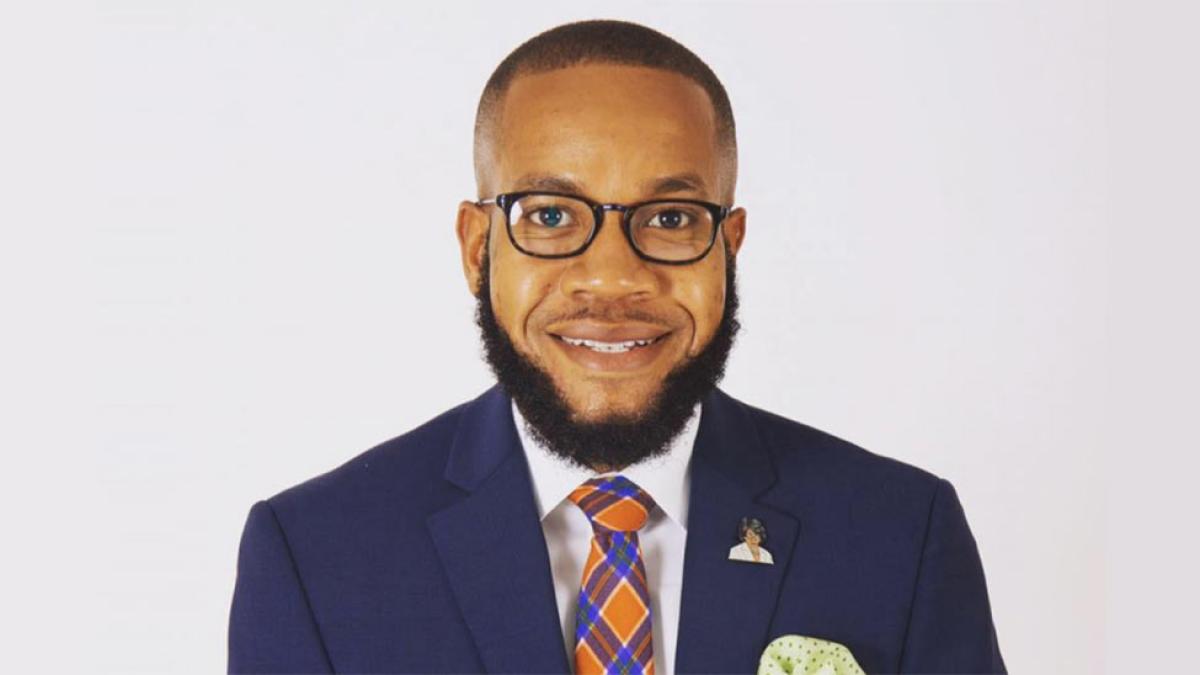
Ask Every Student Announces 2025 Grantees
The Center for Community Action and Research (CCAR) recently received a grant from the Students Learn Students Vote Coalition’s Ask Every Student initiative to support the Pace Votes Leadership Program for the 2025–2026 academic year. The grant will expand civic engagement efforts across campus and build student participation in democratic processes.
Political Circus Over Epstein Files Hurts Sex Trafficking Survivors | Opinion
Criminal Justice Professor Cathryn Lavery pens an op-ed in USA Today, pushing back against claims that the additional recently released “Epstein files” contain no new revelations. Lavery argues that such dismissals retraumatize survivors and allow institutions to evade accountability, calling for full transparency from federal authorities.
How the Jeffrey Epstein Case Tests Grand Jury Disclosure Rules
Elisabeth Haub School of Law Professor Bennett Gershman provides expert insight to Bloomberg in explaining the secrecy surrounding grand jury rules, noting how these legal constraints shape public understanding of the Epstein case.
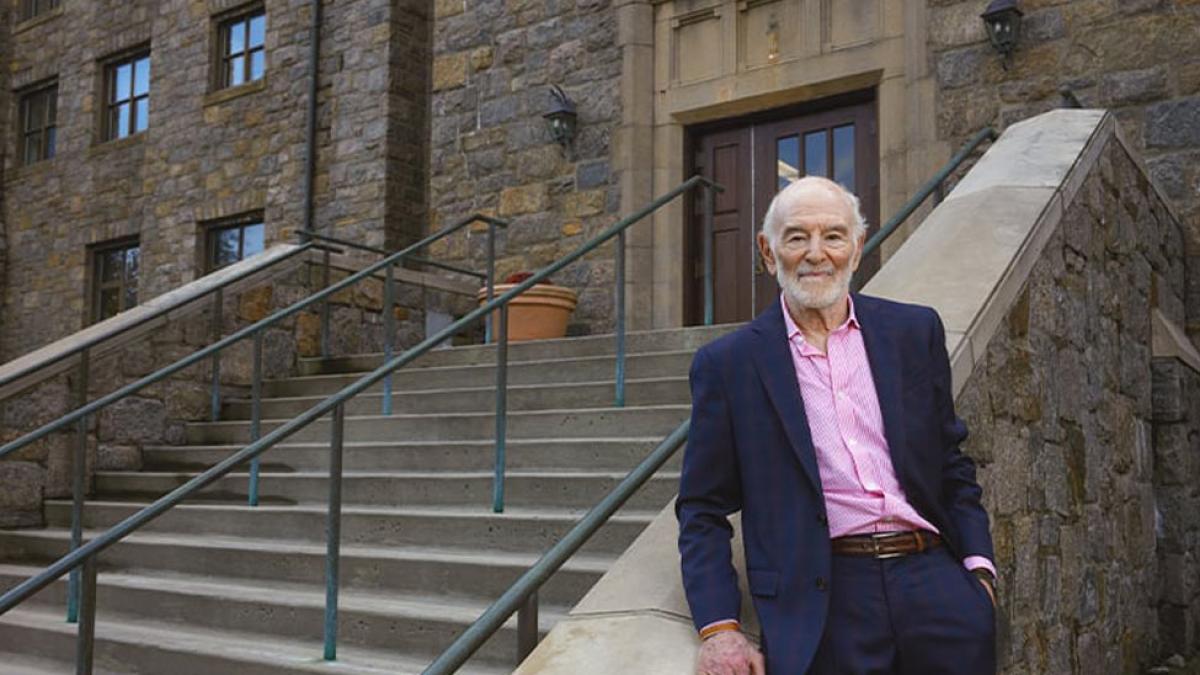
Experts Break Down the Major Roadblocks Cuomo Faces as He Re-Enters New York City Mayoral Race
Political Science Professor Laura Tamman speaks with Time Magazine about how NYC mayoral candidate Zohran Mamdani’s campaign relies on having a clear political adversary, a strategy that could backfire as the race evolves.
PaceDocs Film Team Featured on Andrew Revin Podcast
What’s it like to make a full-length documentary in 14 weeks? Hear from Pace student filmmakers and professors as they discuss their journey on Sustain What?, featuring their latest documentary Viola da Terra.
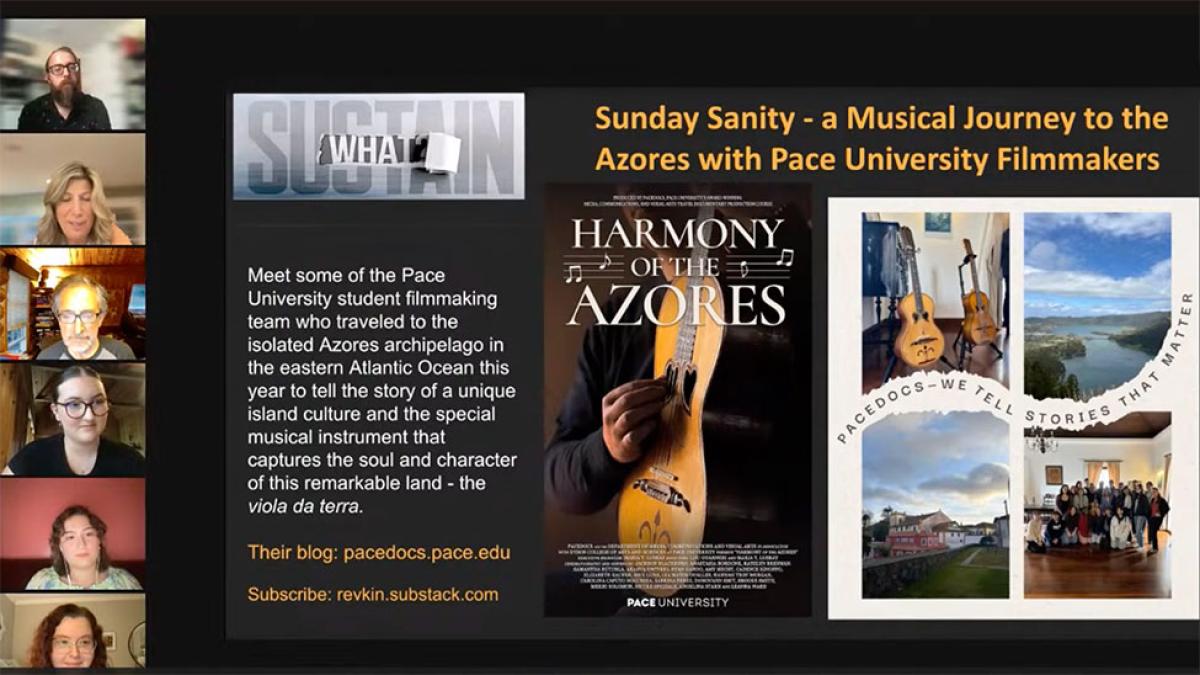
Members of Pace University’s award-winning student documentary team, PaceDocs, were featured on the Sunday Sanity version of Andrew Revkin’s Sustain What? podcast, about their recent film, Viola da Terra: Harmony of the Azores, the focus of the popular Producing the Documentary course, which is part of the Dyson College of Arts and Sciences at Pace University’s highly regarded film program.
Revkin, who co-taught the course from 2010-2016, interviewed Co-producers and Media, Communications, and Visual Arts Professors Maria Luskay, EdD, and Lou Guarneri, MA, and three members of the student team, Samantha Buturla ’24 ’25, BA, English, Writing, and Rhetoric/MA, Communications and Digital Media, Katelyn Brennan ’25, BA, Communications, and Angie Starn ’24 ’25, BS, Digital Cinema and Filmmaking/MA, Communications and Digital Media, about various aspects of their filmmaking experiences.
Viola da Terra, which premiered both at the Jacob Burns Film Center in Pleasantville and in Terceira, Portugal, was filmed over spring break on Portugal’s Azorean islands of São Miguel and Terceira, and explores the story of the Viola da Terra, a traditional 12–15 string instrument with deep roots in Azorean identity, music, and cultural preservation.
The Producing the Documentary course requires students to complete a full-length documentary within 14 weeks. During the process, students learn teamwork, problem-solving, research, and organization, along with technical skills such as lighting, sound, camera work, interviewing, and other real-life lessons necessary to complete a film.
Choosing Between an MBA and Master’s in Finance: 6 Factors to Consider
Is an MBA or a master’s in finance a better fit for your financial career? Compare the goals, structure, and benefits of both degrees, plus their potential outcomes and earning potential, so you can choose your path forward.
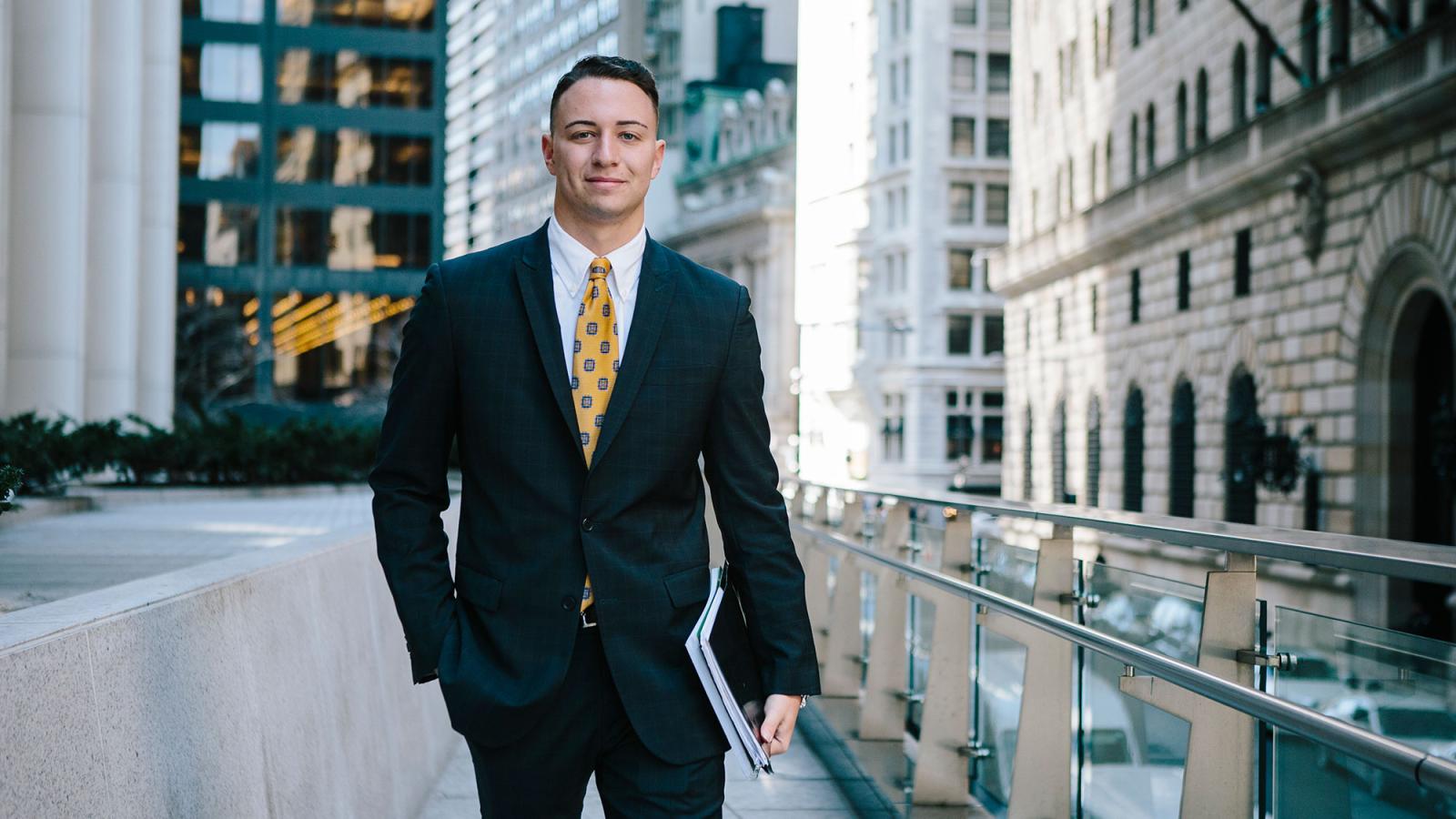
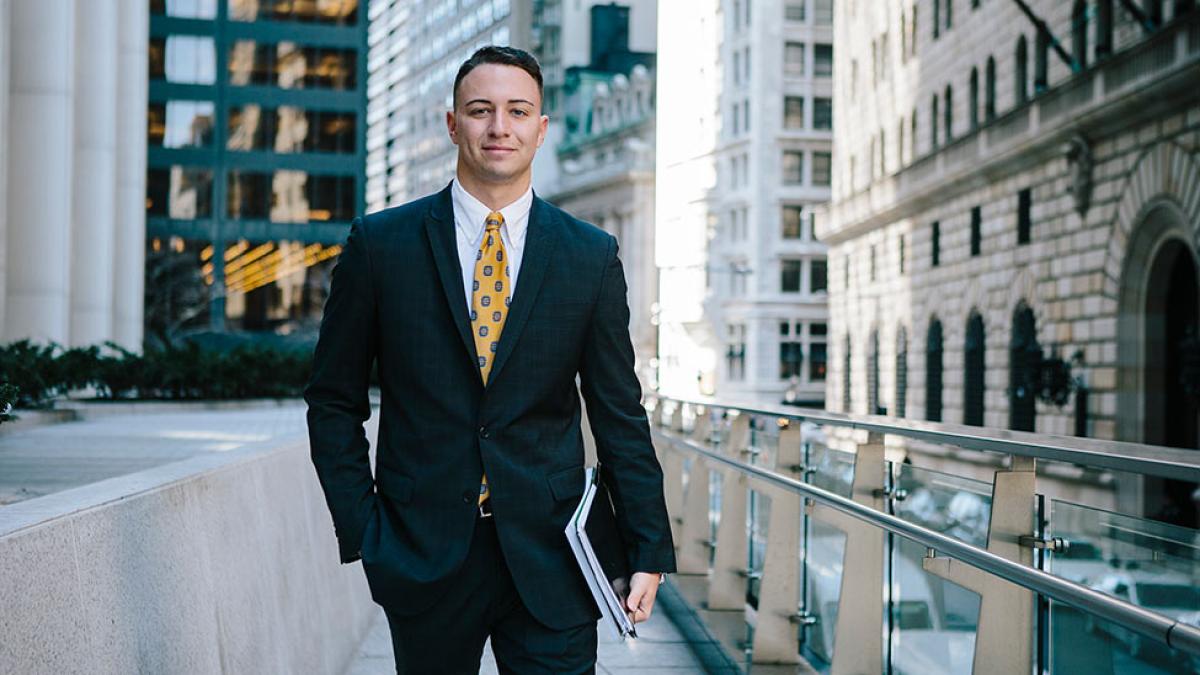
Deciding on a Master’s in Finance vs. an MBA is a significant choice that can shape your career trajectory. Both degrees offer unique advantages, with one focusing on specialized financial expertise and the other providing a broad foundation in business leadership. Are you drawn to in-depth financial analysis or strategic management across industries?
In this guide, we’ll break down the differences between these two graduate programs—examining degree structures, coursework, career paths, and salary expectations. Whether your goal is to lead a company or master financial strategies, Pace University’s programs offer the tools to achieve success.
What is an MBA?
A Master of Business Administration (MBA) is a graduate-level degree that equips students with a broad understanding of business fields, including finance, marketing, management, accounting, organizational structure, and entrepreneurship. This versatile degree prepares graduates for leadership roles in diverse industries and organizations.
Degree Overview and Requirements
MBA programs build on foundational business knowledge and emphasize leadership, strategic decision-making, and problem-solving. Most programs require applicants to hold a bachelor’s degree, and many prefer candidates with one to two years of professional experience to ensure they bring practical insights to the classroom.
At Pace University, students can select from a wide range of MBA specializations tailored to various career paths:
- Accounting
- Arts and Entertainment Management
- Business Administration
- Business Analytics
- Corporate Finance
- General Business
- Information Systems
- Investment Management
- Marketing Analytics
- Marketing Management
- International Business and Strategy
- Talent Management
Duration of Program
The length of an MBA program can vary depending on the format:
- Full-time programs: Typically completed in one to two years
- Part-time or online programs: Designed for working professionals, offering more flexibility and extended timelines
- Executive MBA programs: Targeted at experienced professionals and often completed in shorter, intensive time frames
Coursework
MBA programs offer a comprehensive curriculum designed to cover all aspects of business management, including:
- Accounting and analytics
- Economics and finance
- Marketing and strategy
- Operations management
- Organizational leadership
Benefits of the Degree
An MBA provides a holistic understanding of business, along with the skills to:
- Lead teams and organizations effectively
- Develop innovative solutions to business challenges
- Adapt to dynamic industries and global markets
- Build professional networks that support long-term career growth
Career Paths
MBA graduates are well-prepared for mid-level and senior management roles across industries. Common career paths include:
- Financial manager
- Business consultant
- Operations manager
- Marketing director
- Entrepreneur
Salary Range
Earning an MBA can significantly increase earning potential. Graduates often secure roles in high-demand fields where advanced leadership and strategic thinking skills are valued.
- National average annual base salary: $98,000
- New York City average annual base salary: $180,923, with higher earning potential in specialized fields such as consulting or corporate finance
What is a Master of Finance?
A Master of Science in Finance (MSF or MFin) is a graduate-level degree designed to develop advanced expertise in financial management, investments, and financial theory. Unlike an MBA, which covers a broad range of business disciplines, a master’s in finance focuses exclusively on deepening knowledge in corporate finance, risk management, portfolio analysis, and more.
Degree Overview and Requirements
MSF candidates are typically expected to have a bachelor’s degree in business, finance, economics, or a related discipline. Applicants who excelled in quantitative coursework during their undergraduate studies are especially well-suited for this program.
At Pace University, students can pursue the following graduate programs in finance:
Duration of Program
The duration of a master’s in finance program is generally shorter than an MBA:
- Full-time programs: Typically completed in 12–18 months
- Part-time programs: Flexible schedules enable working professionals to extend the timeline
Coursework
The curriculum of a Master’s in Finance program is highly focused on finance-specific skills and topics, such as:
- Financial modeling
- Investment analysis
- Quantitative methods and risk management
- Corporate finance
- Derivatives and fixed income
At Pace, hands-on experiences, including simulations, case studies, and capstone projects, prepare students for the complexities of the financial world.
Benefits of the Degree
A Master’s in Finance provides students with:
- A deep understanding of financial markets and instruments
- Advanced technical and analytical skills for solving financial challenges
- The ability to specialize in fields like risk management, investments, or corporate finance
Career Paths
Graduates of a Master’s in Finance program often pursue roles such as:
- Investment banker
- Financial analyst
- Risk manager
- Portfolio manager
- Corporate treasurer
Salary Range
A Master’s in Finance can lead to lucrative opportunities, especially in financial hubs like New York City.
- National average annual base salary: $88,000
- New York City average annual base salary: $102,117 annually, depending on specialization and experience.
| Program Overview | General MBA | Corporate Finance MBA | Investment Management MBA |
|---|---|---|---|
| Degree Focus | Broad business foundation covering leadership, strategy, marketing, and financial decision-making across industries | Broad business foundation with a specialization in corporate finance, leadership, and strategic management | Broad business foundation with a specialization in portfolio management, investments, and capital markets |
| Program Duration | Typically 11 months to two years, depending on full-time or part-time format | Typically 11 months to two years, depending on full-time or part-time format | Typically 11 months to two years, depending on full-time or part-time format |
| Coursework | Includes business strategy, leadership, marketing, finance, and organizational behavior | Includes corporate financial management, global financial markets, managerial economics, business analytics, and leadership development | Focuses on portfolio management, investment analysis, asset allocation, and global financial markets |
| Areas of Expertise | Leadership, strategy, team management, operations, and problem-solving | Professional, problem-solving, and leadership skills | Portfolio analysis, investment strategy, and financial market management |
| Career Paths | Mid-to-senior level roles across industries, such as operations manager, business consultant, and general manager | Leadership positions in corporate finance, management consulting, business operations, and strategic planning | Leadership roles in investment management, hedge funds, portfolio strategy, and private equity management |
| Salary Range | National Average: $98,000 NYC Average: $180,923 | National Average: $107,000 NYC Average: $161,825 | National Average: $115,000 NYC Average: $210,323 |
| Program Overview | MS in Financial Management | MS in Financial Risk Management | MS Financial Operations and Technology |
|---|---|---|---|
| Degree Focus | Specialized expertise in financial theory, investment analysis, risk management, and corporate financial strategy | In-depth focus on risk analysis, mitigation strategies, and regulatory compliance in financial contexts | Interdisciplinary finance and tech program emphasizing AI, blockchain, machine learning, and their application in finance settings |
| Program Duration | Generally completed in 12–18 months for full-time students, with part-time options available | Typically 12–18 months full-time, with part-time schedules for working professionals | Typically 1.5–2 years full-time; part-time options available |
| Coursework | Focuses on financial modeling, portfolio management, corporate finance, risk analysis, and quantitative methods | Includes risk assessment, derivatives, financial regulation, advanced quantitative modeling, and compliance | Includes financial technology, data analytics, investment management, and corporate finance applications |
| Areas of Expertise | Investment strategies, corporate financial management, and advanced quantitative finance. | Risk analysis, compliance, financial regulation, and mitigation planning | FinTech product design, IT-based financial solutions, operational finance, and data-driven decision-making |
| Career Paths | Finance-specific roles like financial analyst, portfolio manager, risk manager, corporate treasurer, and investment strategist | Specialized risk management positions, such as financial risk analyst, compliance officer, or regulatory consultant | Financial systems manager, FinTech product manager, compliance officer, financial analyst, banking operations manager |
| Salary Range | National Average: $88,000 NYC Average: $102,117 | National Average: $88,000 NYC Average: $102,117 | National Average: $88,000 NYC Average: $102,117 |
Note: All salary figures were sourced in November 2024. Annual wages can vary based on a number of factors, including employer, location, and years of experience.
How to Choose Between an MBA and an MSF
Pace University offers a range of graduate programs tailored to students' diverse career goals, academic strengths, and professional aspirations. Whether you’re drawn to the leadership focus of an MBA or the technical expertise of finance-specific master’s degrees, the following considerations will help you decide.
Academic Interests and Strengths
- The Investment Management MBA is designed for students who want a broad understanding of business and leadership principles across multiple industries.
- The Corporate Finance MBA is ideal for those interested in corporate financial strategy, combining business leadership with a focus on financial decision-making.
- The MS in Financial Management is tailored for students passionate about financial theory, quantitative methods, and investment strategies.
- The MS in Financial Risk Management appeals to individuals focused on risk mitigation, compliance, and advanced analytics within the financial sector.
Background and Experience Level
- The MBA programs welcome students from diverse academic and professional backgrounds, making them strong choices for career changers or those exploring business leadership. While prior work experience is often preferred, it’s not always required.
- The MS in Financial Management and MS in Financial Risk Management cater to individuals with a solid foundation in business, finance, or economics. A strong aptitude for quantitative analysis is recommended for these programs.
Program Structure and Duration
- The MBA programs are highly flexible, offering full-time, part-time, and online options. Most students complete the program within one to two years.
- The MS in Financial Management and MS in Financial Risk Management are typically shorter, ranging from 12 to 18 months, with part-time options available for working professionals.
Career Goals
- The General MBA prepares graduates for leadership roles across industries, including management, consulting, and operations.
- The Corporate Finance MBA is best suited for those aspiring to leadership positions in corporate finance, strategic planning, or business consulting.
- The MS in Financial Management is ideal for students aiming for roles such as financial analyst, portfolio manager, or corporate treasurer.
- The MS in Financial Risk Management equips graduates for specialized careers in risk assessment, regulatory compliance, and financial risk analysis.
Job Market Demands
- The General MBA and Corporate Finance MBA appeal to employers seeking professionals who can lead teams, strategize effectively, and drive organizational growth.
- The MS in Financial Management addresses the increasing demand for finance professionals skilled in quantitative methods and investment analysis.
- The MS in Financial Risk Management targets the growing need for specialists adept at navigating financial regulations and mitigating risk.
Potential for Career Advancement
- The General MBA and Corporate Finance MBA provide pathways to senior leadership roles, offering a broad foundation for advancement across industries.
- The MS in Financial Management and MS in Financial Risk Management prepare graduates for upward mobility in technical or specialized finance roles, with opportunities for further specialization.
Choosing the Degree that Aligns with Your Goals
Whether you’re drawn to the leadership opportunities of an MBA or the specialized expertise of a Master’s in Finance, Pace University has a program to match your goals. Options like the Financial Management MS, Financial Risk Management MS, Corporate Finance MBA, and Investment Management MBA offer flexible formats and real-world learning in the heart of New York City.
FAQ
Is it better to get an MBA or MS in finance?
It depends on your career goals. An MBA is ideal for broad business knowledge; an MSF focuses on finance specialization.
Who earns more, MBA or Master’s in finance?
MBA grads generally earn higher salaries, especially in leadership roles. The average annual base salary is $180,923 in NYC.
Is it smart to get a master’s in finance?
Yes, if you want to build advanced financial expertise and pursue specialized roles in investment analysis, corporate finance, or risk management.
Is it better to have an MBA or a Master’s in finance?
Neither is inherently better—it all depends on your career aspirations. An MBA offers versatility and leadership preparation, while an MS in Finance focuses on deep financial expertise for technical roles.
Is an MBA harder to earn than a Master’s?
It depends on your background and interests. An MBA typically covers a broader range of topics, requiring strong leadership and strategic thinking, while an MS in Finance is more specialized and focuses heavily on technical financial skills and quantitative analysis.
Should I get an MSF or MBA?
Consider choosing an MSF if you want to specialize in finance and build advanced technical skills. Opt for an MBA if you prefer a broader business education and leadership opportunities across multiple industries.